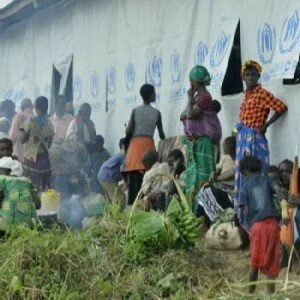Shortage of drugs in health centres in South Sudanese refugee settlements in Adjumani district is forcing parents to sell their food rations to access private medical services. Some of the refugees told journalists recently that host communities were taking advantage of the situation and buying their food cheaply.
“My daughter got malaria in November 2014. We went to Ayilo II health centre but there were no drugs,” said Rach Nyanbai, 26. “I had two basins of sorghum left. When my daughter’s health deteriorated, I had to sell one basin at Shs 10,000 to a resident so I could take my daughter to a private clinic.”
Nyanbai is living with nine other people, including children. Her husband, Garang Aleer, was left fighting in Duk county, Jonglei province, and the family have not heard from him since they arrived in Uganda in March 2013.
In an interview with The Observer, Titus Jogo, a refugee desk officer (RDO) in Office of the Prime Minister (OPM) in Adjumani, admitted there were some drug shortages, which he blamed on the procurement process which is done internationally by UNHCR.
“In addition, medicines and supplies are even insufficient; so, this forces the refugees to buy medicines in private clinics expensively yet they are financially weak,” he said.
Out of 466,135 refugees hosted in Uganda today, Adjumani district is now hosting 108,112 in fourteen settlements. This year, World Refugee day was commemorated under the theme: “Refugees are regular people; get to know and support them.”
Speaking in Adjumani last Saturday, Second deputy Prime Minister Moses Ali pledged that Uganda would continue to meet her refugee-related obligations under international law.
“But we also call upon the international community to support us to be able to host the refugees in a dignified manner and mitigate the challenges that come with hosting such big numbers of refugees,” Gen Ali said.









No Comments